D-BSSE News
All stories by Carolin Arndt Foppa
Meet Szu-Hsien “Sam” Wu investigating the molecular process of metastasis
Internal
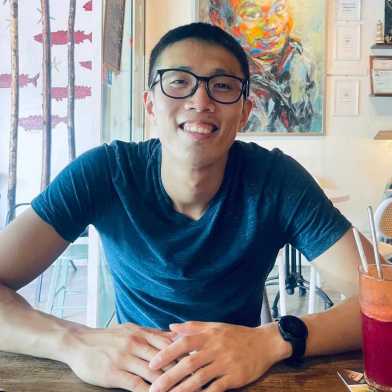
The Taiwanese molecular and stem cell biologist recently started his postdoc position in the Systems Physiology group of Andreas Moor. When moving to Switzerland Sam was mentally prepared to be challenged by bureaucracy; instead, he experienced great support in settling in and a warm welcome by his Rhine-swimming lab colleagues.
Inauguration of global Centre for Pathogen Bioinformatics
External

Guided by D-BSSE researchers Niko Beerenwinkel and Tanja Stadler and other steering group members from the University of Basel, the Swiss Institute of Bioinformatics (SIB) opens a dedicated centre for computational pathogen research and surveillance. The new Centre for Pathogen Bioinformatics offers expertise and services to the Swiss federal authorities and global research community, contributing to global pandemic preparedness and response in realtime.
Na Cai becoming D-BSSE faculty member
External
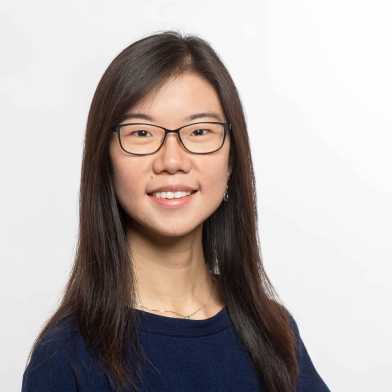
At the last meeting of the ETH Executive Board, Na Cai, currently Principal Investigator at Helmholtz Pioneer Campus and at the Technical University of Munich, Germany, was appointed as Tenure Track Assistant Professor of Computational Medical Genomics at the D-BSSE. She will strengthen the department’s expertise in medical genomics and bioinformatics. A warm welcome, Na!
Welcome to our new Master students starting fall semester 2024!
External
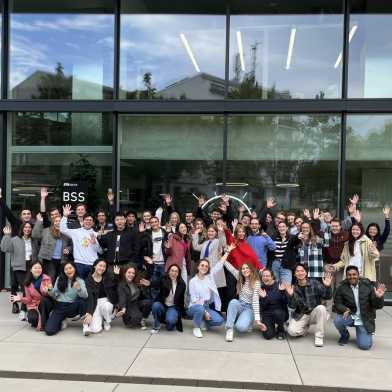
A warm welcome to our 71 new Master students at D-BSSE in Basel, enrolled in our Biotechnology and Computational Biology & Bioinformatics Master-level programmes. Have a great start!!!
Meet Carson Cole researching fibrotic processes in heart and liver disease
Internal
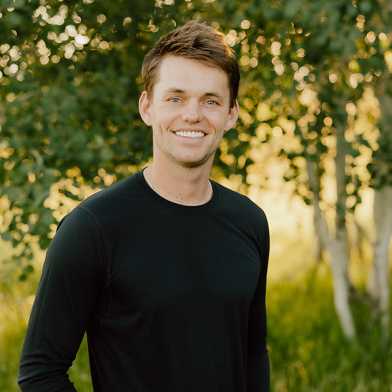
The specialised ‘collagen chemist’ from Idaho, USA, has just started his postdoctoral position at the Biophysics Lab of Daniel Müller. Carson will continue his research on the extracellular matrix and its assembly mechanisms, particularly in the context of diseases. He enjoys sharing coffee breaks together with his lab members to talk science over a cup of coffee, and on his new hometown he says: “Basel has exceeded my expectations so far”.
Spinoff company BioVersys announces investment in clinical development of its lead asset BV100 in China
External
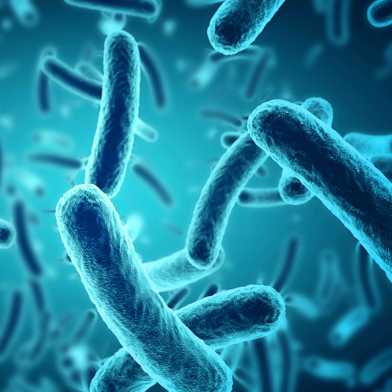
On 11 September, D-BSSE spinoff BioVersys announces the investment of US$6m by investment firm Guangzhou-Israel Biotechnology Fund. This investment aligns with BioVersys’ strategic decision to expand its BV100 clinical programme in China. BV100 is a novel formulation of rifabutin suitable for intravenous administration which is targeting specific Acinetobacter baumannii - bacteria, an opportunistic pathogen in humans, typically infecting critically ill and immunocompromised patients.
Tanja Stadler receives the Luigi Luca Cavalli-Sforza Prize
External
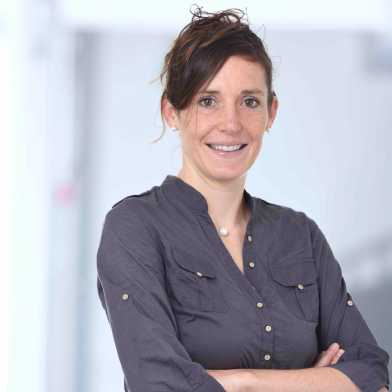
Honouring her “extensive contribution to the field of evolution which open new lines of investigation”, Tanja Stadler, Head of the Computational Evolution group, is being awarded the Luigi Luca Cavalli-Sforza Prize by the Italian Society of Evolutionary Biology SIBE. Congratulations, Tanja!
Upcoming Event: Next-gen Seminar
External
On 30 September, the next public seminar organised by the ETH Zurich-Roche partnership Next-gen Bioengineers will take place at the ETH Basel premises. Professor Bart Deplancke from the Laboratory of Systems Biology and Genetics, EPF Lausanne, will talk about 'Advancing biology through single cell phenomics'. The seminar will start at 11:30am and will be live-streamed.
Our Professor of Practice now in new role
External
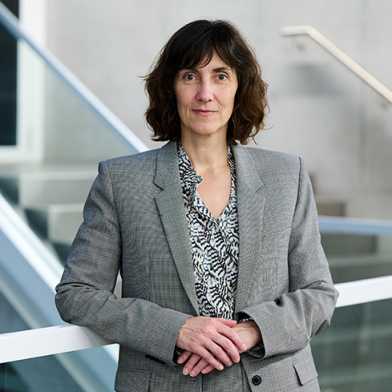
Sylke Poehling, first Professor of Practice at D-BSSE, Senior Vice President for Therapeutic Modalities at Roche Pharma Research & Early Development (pRED), becomes the Chief Executive Officer of Spark Therapeutics, a Philadelphia-based company specialised in developing gene therapies. Spark is a member of the Roche group. Congratulations, Sylke!
Upcoming Event: ETM 'Bench meets Bedside' seminar
External
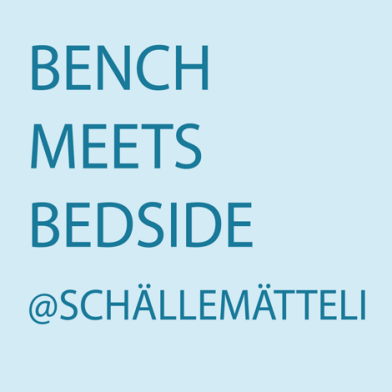
On 18 September, the next 'Bench meets Bedside' seminar organised by the Engineering Translational Medicine (ETM) initiative will take place on Campus Schällemätteli. Speakers include Viola Heinzelmann-Schwarz (USB/UniBas), Julia Bielicki (UKBB) and Mustafa Khammash (ETH/D-BSSE). This seminar series builds a platform for researchers and clinicians to connect and collaborate. Please register.
Daniel Müller becomes Co-Director of BRCCH
External
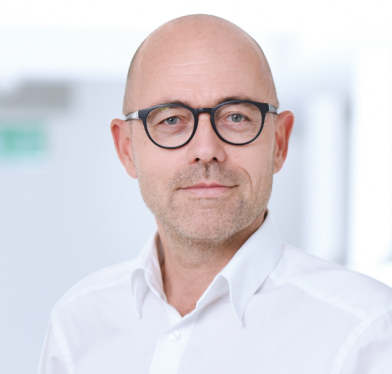
Succeeding Sai Reddy, Daniel Müller is now Co-Director of the Basel Research Centre for Child Health (BRCCH). Together with Georg Holländer, also professor at D-BSSE, he will help guide the strategic orientation and initiatives of the 2018-founded BRCCH as it transitions to a digital health hub in Basel.
Novel computational approach to identify intracellular reaction processes
External
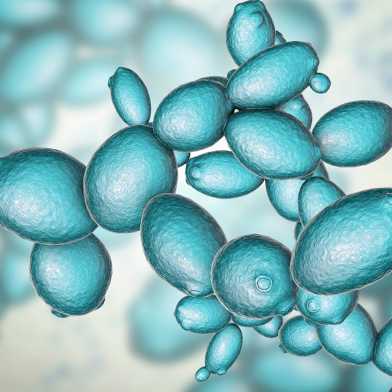
Intracellular processes, steered by the gene expression system, are high-dimensional and often intrinsically noisy. Advanced computational analysis of single-cell time-lapse microscopy data has the potential to unravel complex molecular networks within cells. In Nature Communications, researchers from the group of Mustafa Khammash present a novel way to decompose a large-scale network identification problem into several smaller, manageable subproblems.
Michael Moor becoming D-BSSE faculty member
External
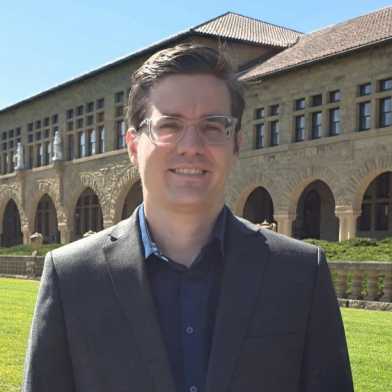
At the last meeting of the ETH Executive Board, Michael Moor, currently Postdoctoral Scholar at Stanford University, USA, was appointed as Tenure Track Assistant Professor of Medical AI at the D-BSSE. A warm welcome, Michael!
Tanja Stadler elected EMBO member
External
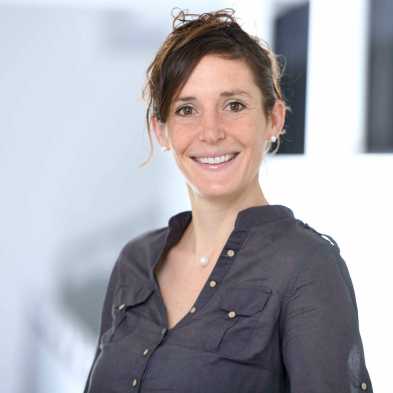
Congratulations to Tanja Stadler, head of the Computational Evolution Group at D-BSSE, on being elected member of the European Molecular Biology Organisation (EMBO). The growing EMBO network promotes excellence in life sciences and shapes their direction in research, fosters the careers of young scientists and strengthens the research communities in Europe and beyond. This year, EMBO celebrates its 60th anniversary.
Unveiling the mechanisms underlying human cell diversity
External
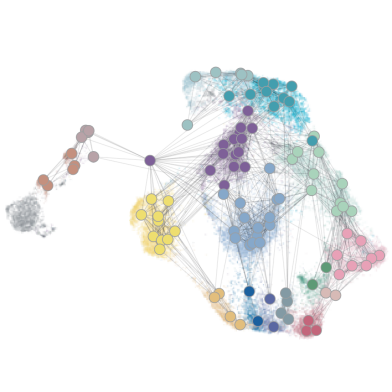
How do cells with the same genetic material differentiate into diverse cell types during early embryonic development? In a study in Nature Neuroscience led by the Quantitative Developmental Biology group of Barbara Treutlein in collaboration with colleagues from the Roche Institute of Human Biology, scientists explore at single-cell level the role of histones in serving as on-/off-switches for gene expression during cell development and differentiation in brain organoids.
Basel honours Prisca Liberal with prestigious Science Prize
External
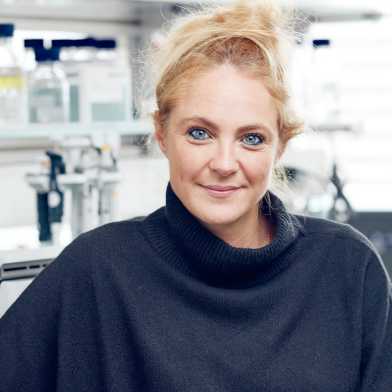
The City of Basel awarded this year’s Science Prize to Prisca Liberali, Head of the Molecular Systems lab at D-BSSE and group leader at the University of Basel, in recognition of her groundbreaking research on the collective properties of developmental and regenerative systems. The award, valued CHF 20’000, is presented annually to outstanding researchers based in Basel.
Spinoff Myria Biosciences announces closing of pre-seed funding round
External
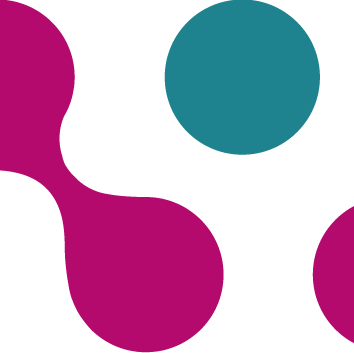
Myria Biosciences AG, a Basel-based pioneer in drug discovery using synthetic biology and AI originating from the D-BSSE, today announces the closing of its pre-seed round. The new funding will enable Myria to expand its scientific team, kickstart its internal drug candidate pipeline, and forge additional partnerships with leading pharmaceutical companies.
Launch of global research centre for immune engineering advancing child and adolescent health
External
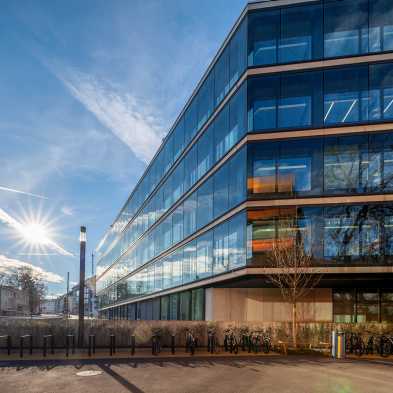
On 18 June, a new independent research institute, the Botnar Institute of Immune Engineering (BIIE) is launching in Basel, Switzerland. The BIIE is a newly founded non-profit research organisation focused on developing computational tools and immune-based translational solutions for the diagnosis, treatment and prevention of disease in children and adolescents.
Meet Gisbert Schneider who becomes faculty member at D-BSSE
External
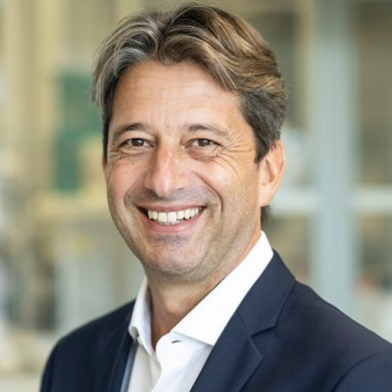
As of 1 June, ETH-professor and Biochemist/Bioinformatician Gisbert Schneider, is affiliated with D-BSSE. Heading the Computer-Assisted Drug Design group, also some of his lab members moved from the Institute of Pharmaceutical Sciences at D-CHAB to Basel. Gisbert’s research activities focus on the development and application of adaptive intelligent systems for molecular design and drug discovery. A warm welcome, Gisbert!
Congratulations to our 2023 graduates!
External
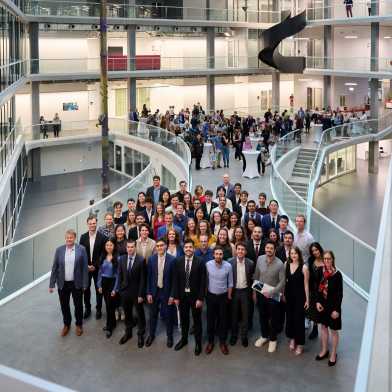
On 24 May, 22 Biotechnology and 33 CBB (Computational Biology and Bioinformatics) students celebrated their graduation together with families and friends, in total some 180 guests. Special congrats go to this year’s awardees of the ETH Medals for outstanding master’s thesis and the Willi Studer Prize!
Book publication on the great potential of analysing data from sequenced genomes
External
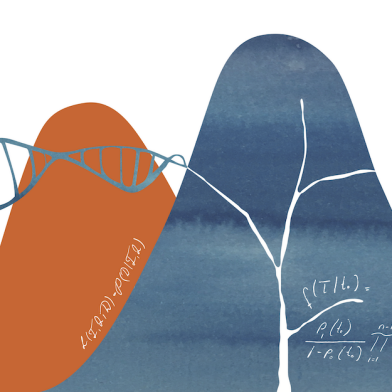
Tanja Stadler, head of the Computational Evolution group, and members of her team published a book for students and researchers who aim to analyse genomic sequence data or develop statistical and computational approaches for such analyses. Entitled “Decoding Genomes: From Sequences to Phylodynamics”, the book focusses on how to uncover information about past evolutionary and population dynamic processes based on genomic samples.
Opening ceremony of the BSS building: Celebrating the new Basel location of ETH Zurich
External
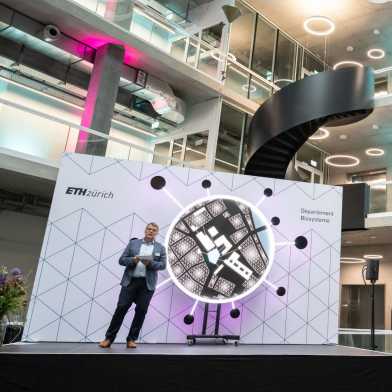
On 16 May 2024, ETH Zurich celebrated the official opening of its new teaching and research building BSS in Basel. The different speakers unanimously emphasised that over the past 17 years the ETH-Department Biosystems Science and Engineering has become an important partner in the Basel life science hub.
Prisca Liberali becoming D-BSSE faculty member
External
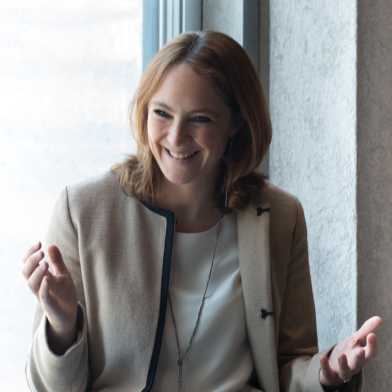
At today's meeting of the ETH Executive Board, Prisca Liberali, currently Adjunct Professor at the University of Basel and Senior Group Leader at the Friedrich Miescher Institute for Biomedical Research, was appointed as Full Professor of Multicellular Systems at D-BSSE. A warm welcome, Prisca!
Sylke Poehling first Professor of Practice at D-BSSE
External
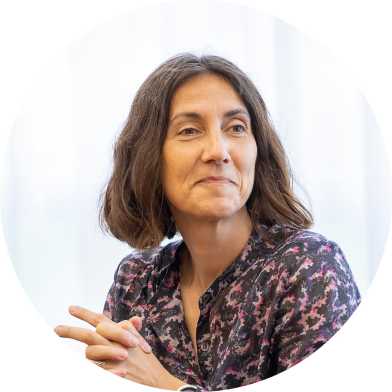
Sylke Poehling, Global Head and Senior Vice President for Therapeutic Modalities at Roche Pharma Research & Early Development (Roche pRED) and Member of the Supervisory Boards of Roche Diagnostics GmbH and Roche Deutschland Holding GmbH, has been appointed the first Professor of Practice at our department. A warm welcome, Sylke!
Barbara Treutlein promoted to full Professor
External
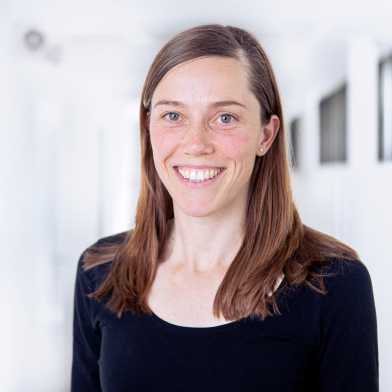
The Executive Board of ETH Zurich communicates today the promotion of Barbara Treutlein, currently Associate Professor at D-BSSE, to Full Professor of Quantitative Developmental Biology. Big contrats, Barbara!
Registration closes soon: Latsis Symposium on Genome and Transcriptome Engineering
External
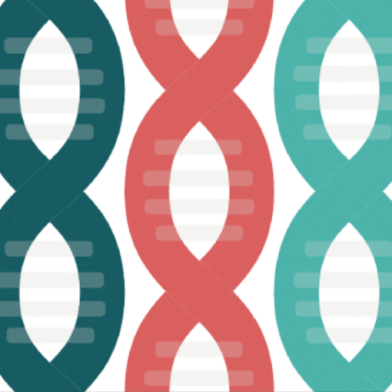
Genome and transcriptome engineering has revolutionised fundamental research and is bringing cutting-edge therapies to patients. Please register for an exciting two-day symposium on 13-14 June with speakers from academia and industry at the forefront of the field. Topics will span brand new research results and applications in the real world; the abstract submission deadline is on 31 May.
ETH Public Tour: Open doors at the Systems Physiology Laboratory
External
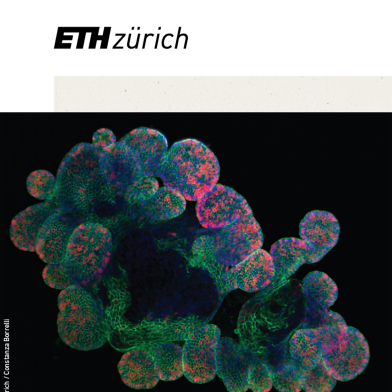
On 4 June, at 6:15 PM, the public is invited to learn about how cancer cells communicate with their environment. After a short introduction by Dr Xenia Ficht, Senior researcher in the lab of Professor Andreas Moor, you will go into the labs and discuss with young scientists their research and experimental set ups. Please register for this tour as seats are limited (in German)!
ETH Medal for excellent research: Insights from human organoids and axolotls
External
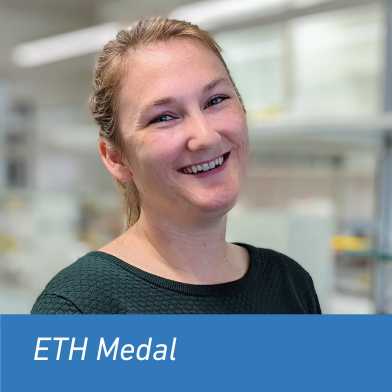
Ashley Maynard from the Quantitative Developmental Biology group of Barbara Treutlein receives the ETH medal for her excellent doctoral thesis on the molecular landscape of neurogenesis in the vertebrate brain. Big congrats!
Spinoff Memo Therapeutics boosts Series C Financing, advancing antibody development against BK virus infection
External
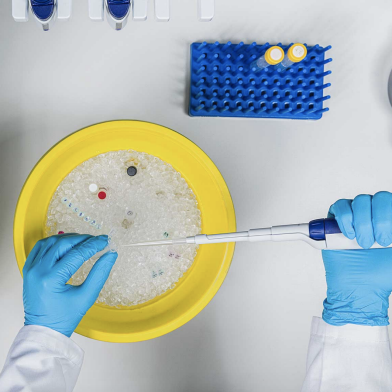
On 7 May, the D-BSSE spinoff Memo Therapeutics announced the extension of its Series C financing, bringing the total amount raised in the funding round to CHF 45 million. According to the media release, the raised capital will be instrumental to expand Phase 2 of clinical development by evaluating the dose of “best-in-class anti-BK Virus antibody”, facilitating “the largest study ever conducted for BK polyomavirus infection in kidney transplantation”.
Tanja Stadler elected member of the Leopoldina
External
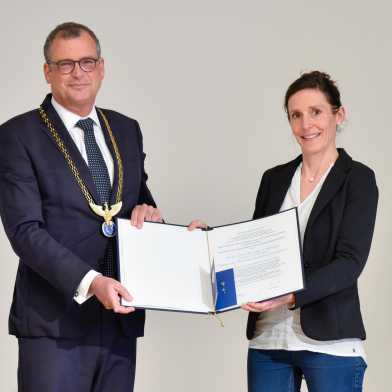
Great honour for Tanja Stadler, Head of the Computational Evolution group: on 17 April, she officially received the membership certificate from Leopoldina, the German National Academy of Sciences. Leopoldina unites researchers with outstanding expertise in their respective fields, currently counting around 1'600 Academy members, being elected for their outstanding scientific achievements. Congratulations, Tanja!
Randall Platt receives the Young Innovator Award from the American Chemical Society
External
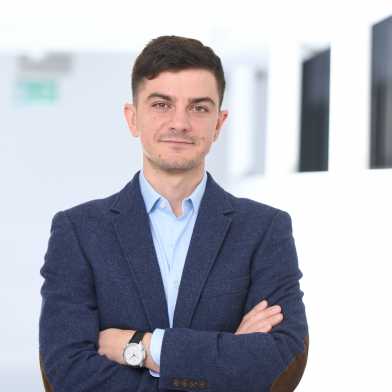
On 16 April, the Synthetic Biology publication branch of the American Chemical Society (ACS), in partnership with The American Institute of Chemical Engineers, announced the winner of the 2024 Young Innovator Award: Randall Platt, Head of the Biological Engineering lab. The award recognises his “focus on developing and applying cutting-edge gene editing and synthetic biology technologies that address urgent and fundamental needs in biomedical research”.
Swiss Institute of Bioinformatics is listing Beerenwinkel paper as Remarkable Output 2023
External
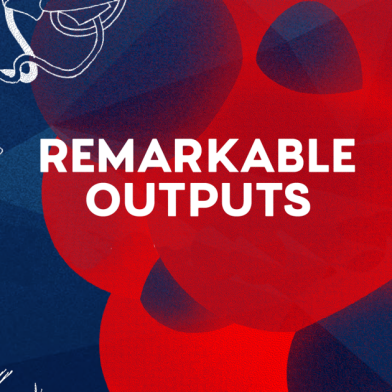
On 9 April, the Swiss Institute of Bioinformatics announced the Must-Reads for computational biologists, including a paper on the novel computational tool TreeMHN developed by the group of Niko Beerenwinkel. According to the committee, the tool “represents outstanding progress in the life science field. It enables a better processing of single cell-based tutor mutation data for the representation and potentially, prediction of cancer trajectories”.
Antimicrobial resistance may evolve more rapidly than previously thought
External
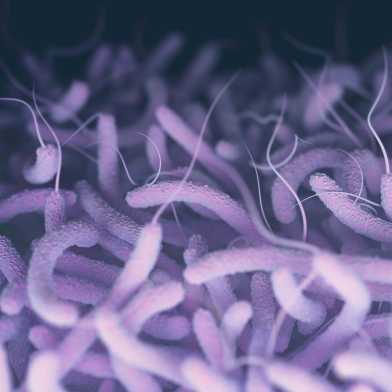
As antimicrobial resistance increases globally, infections with resistant bacteria pose a major public health threat. In a new study in Nature Catalysis, a team of researchers led by Adrian Bunzel from the Bioprocess Laboratory at D-BSSE and Christopher Frohlich from the Arctic University of Norway revealed a novel mechanism for how resistances can emerge alarmingly fast. The discovery may help create antibiotics that are less prone to resistance and guide personalized health care.
Farewell to faculty member Yaakov (Kobi) Benenson
External
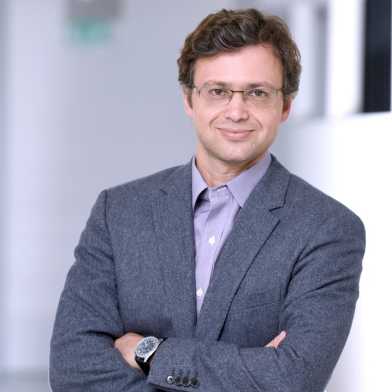
Yaakov Benenson, Professor of Synthetic Biology, leaves the D-BSSE at the end of March to become a full-time entrepreneur at a biotech startup.
GLOBE magazine turns the spotlight on D-BSSE
External
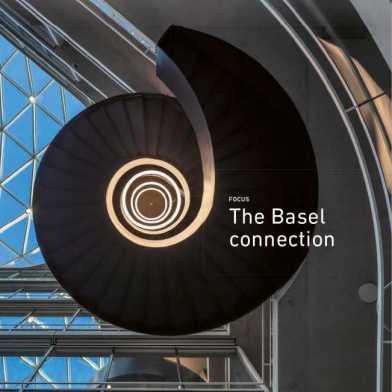
The latest issue of the GLOBE magazine of ETH Zurich has a focus on the D-BSSE and its connections and cooperations with institutions in Basel and beyond. Featuring numerous examples of cutting-edge research, the magazine reveals the department’s unique strengths in combining life sciences and data-driven engineering to target key medical challenges. A truly inspiring read!
Embarking on the ETH Net Zero expedition
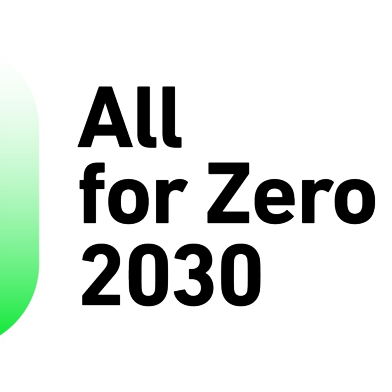
What will it feel like to research, teach, study and work at a climate- neutral ETH Zurich? With the launch of the "ETH net zero" programme, all ETH members are on a major expedition together towards an ambitious goal. The message: "All for zero 2030".
The new RESPECT programme

“Respect - Reflect - Respond”: Starting on 18 march, this slogan has been rolled out across all places at ETH Zurich. It is part of the new RESPECT programme aimed at all members of the university community. These three words summarise how we should treat each other at ETH Zurich: on equal terms, willing to reflect on our own thoughts and actions, and responding appropriately in a variety of contexts. Find various resources including the updated Code of Conduct and the event agenda online!
Seminar “Bench meets Bedside”
External
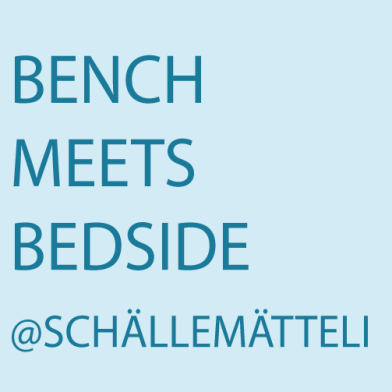
On 18 April, 3-5pm, the next ‘Bench meets Bedside’ seminar of the Engineering Translational Medicine initiative will take place at the new D-BSSE building. Consult the website for the programme and the registration link (closing on 15 April).
Full house at Personalised Health Conference
- ETM
- External
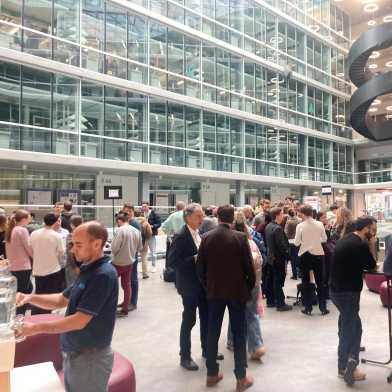
Today, we are hosting the Personalised Health Conference with an excellent lineup of keynote speakers: Adrian Egli, Director of the UZH-Institute of Medical Microbiology, Emma Slack, ETH-Professor for Mucosal Immunology, and Jacques Fellay, EPFL-Professor of Genomics and Precision Medicine. Scientists from the D-BSSE and the EU-funded network Machine Learning Frontiers in Precision Medicine also share their latest findings and perspectives on translational research and personalised health.
Niko Beerenwinkel now distinguished fellow of ISCB
External
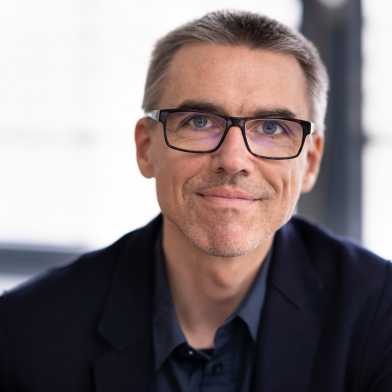
The International Society for Computational Biology ISCB welcomes Niko Beerenwinkel, head of the Computational Biology Group, in its 2024 class of fellows. Honouring distinguished scientists who advanced the frontiers of computational biology and bioinformatics, the jury highlighted Niko’s groundbreaking contributions to cancer research and viral genomics. Congratulations, Niko!
Ride a PubliBike!
Internal
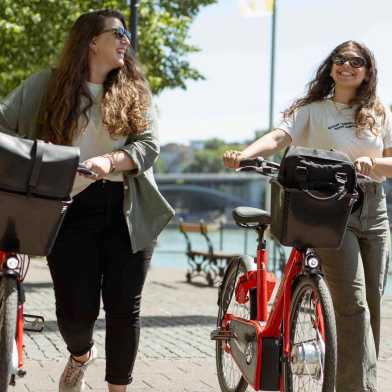
We are happy to announce that the successful partnership of ETH Zurich with PubliBike from Zurich will now be extended to Basel. Staff and students of the Department of Biosystems Science and Engineering can rent the Velospot bikes or e-bikes in Basel-Stadt free of charge for the first 15 minutes (each ride) for a period of 100 days from purchase.
D-BSSE spinoff BioVersys teams up with GSK and successfully reaches clinical milestone
External
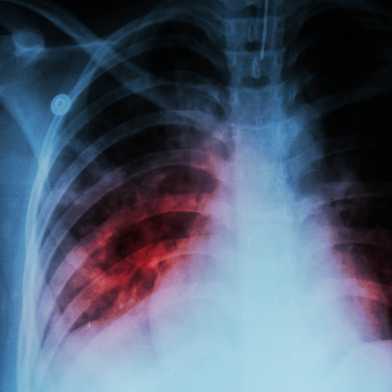
Developing novel antibacterial products for life-threatening infections, BioVersys announced on 5 March that in partnership with the pharma and biotech company GSK they have successfully completed the Innovative Medicines Initiative (IMI2) funded programme and reached a key milestone of delivering a Phase 2-ready tuberculosis clinical candidate. The funding scheme is an EU public private partnership programme.
Studying the mechanosensitivity of neurons at nano-scale
External
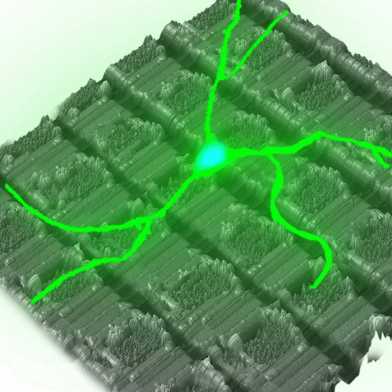
Right from the early developmental stages to fully grown adults, brain cells continuously rely on mechanical cues to migrate to the correct locations in the body, form connections with other neurons or other cell types and communicate with them in a unique language of electrical impulses. In a new study, researchers from the Biophysics group of Daniel Müller and the Bio Engineering Lab of Andreas Hierlemann reveal how neurons sense the magnitude and temporal features of physical forces.
Understanding the pathology of neurodegenerative diseases
External
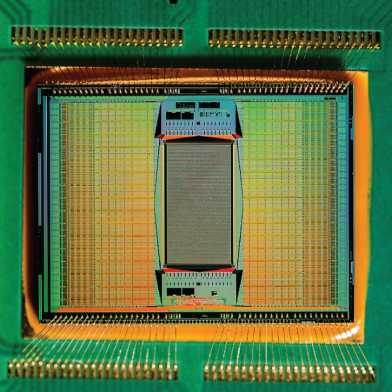
Neurodegenerative diseases such as amyotrophic lateral sclerosis (ALS) and frontotemporal lobar dementia (FTLD) are difficult to study in vivo. A study led by the University of Zurich in collaboration with the Lab of Andreas Hierlemann, now identifies potential targets that may cause these diseases and their progression. The scientists developed a novel human-derived in vitro cell-culture model and methods for testing that the cells are functional, paving the way for new therapies.
2023 in Review
External
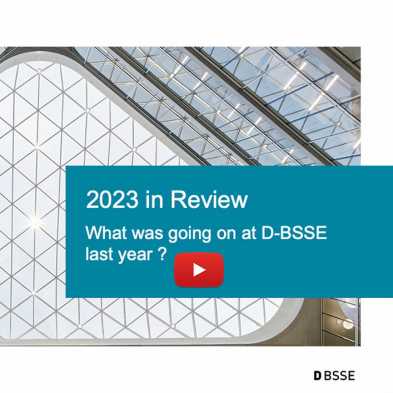
Last year was a very exciting year for the D-BSSE: we moved into our new building on campus Schällemätteli in Basel, celebrated many awards, prizes and scientific highlights, launched major partnerships such as the Next-gen Bioengineers programmes with Roche and the Engineering Translational Medicine initiative - and hosted a fantastic welcome retreat. See what was going on at D-BSSE in 2023!
Personalised Health Conference on 13-14 March at D-BSSE
- ETM
- External
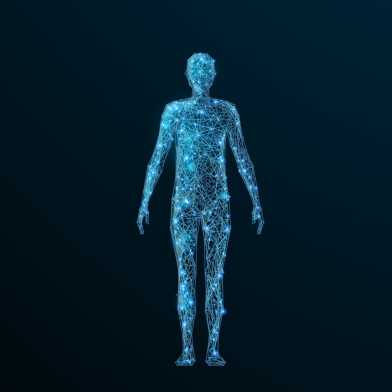
In mid-March, the Personalised Health Conference will take place at D-BSSE. The programme includes two exciting days with keynote talks by Adrian Egli, Emma Slack and Jacques Fellay. On the second day the focus lies on translation, entrepreneurship and commercialisation. Registration is free of charge and ends on 10 March.
SNF Spark grant for postdoctoral researcher Asli Azizoglu
Internal
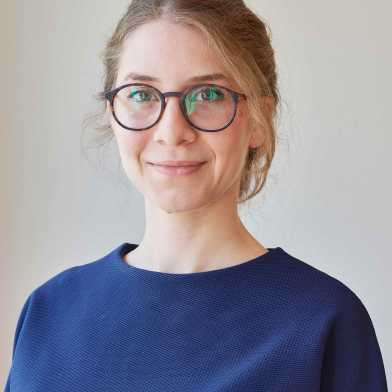
G-Protein Coupled Receptors (GPCR) are cell-surface receptors that detect molecules outside the cell and activate cellular responses. They regulate a large variety of pathophysiological processes and are therefore the target of extensive drug discovery efforts. In her Spark-funded project from the Swiss National Science Foundation, Asli Azizoglu from the Computational Systems Biology group will develop a technology platform that identifies very efficiently functional drugs that target GPCRs.
Welcoming new leadership at D-BSSE
External
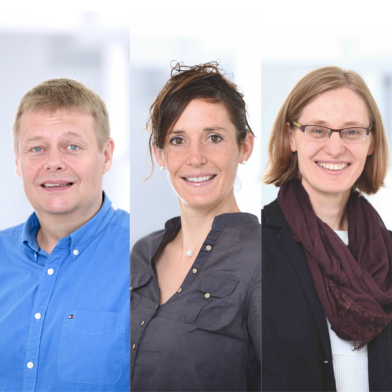
As of 1 February 2024, a new leadership runs D-BSSE: Head of Department is Sven Panke, his Deputy is Tanja Stadler. Petra Dittrich continues in her role as Director of Studies. Big thanks go to the outgoing Department Head Daniel Müller, who led the D-BSSE for the past 3 years.
Novel intestine-on-chip system
External
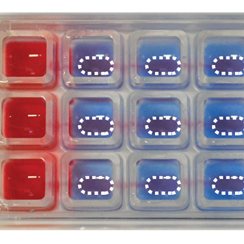
The pathogenesis of inflammatory bowel disease is complex and not fully understood. A novel intestine-on-chip microfluidic system, developed by the Bio Engineering Laboratory of Andreas Hierlemann now enables to study in detail the physiological processes during inflammation. The system helps to elucidate the role of different immune cell types in intestinal inflammation and their specific responses to anti-inflammatory drugs and provides valuable insights for developing therapeutic strategies.
NCCR Molecular Systems Engineering offers grants for its art-science exchange programme
Internal
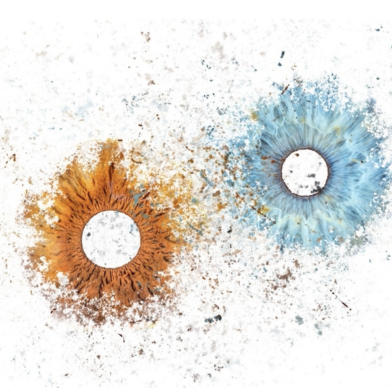
Launching in March 2024, the NCCR MSE is inviting Phd students and postdoctoral researchers to apply for the new art-science exchange programme: “Brigding Horizons - Art and Science’s Creative Collision”.
Great public interest in Open-Lab tour
External
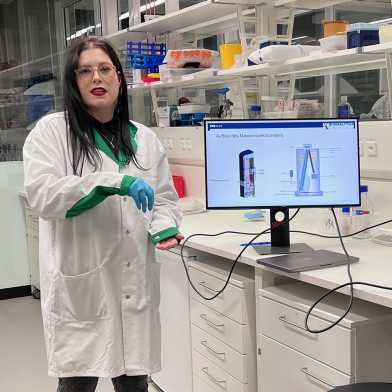
On 12 December, Petra Dittrich and her group invited the public to learn about microchips and their great use for medical and diagnostic applications or for biological analyses. After a short introduction on the principles of ‘lab-on-a-chip’ technologies, the visitors to the fully booked tour saw some of the labs from inside and had the opportunity to discuss open questions with the young scientists.
Big congrats to the herHack winners Bethany and Marina
Internal
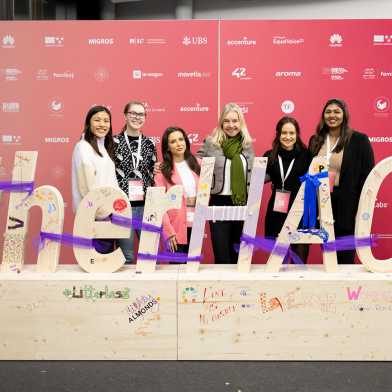
Bethany Allen and Marina Nikolova, two postdoctoral researchers at D-BSSE, and their team members won the first place at herHack, Switzerland’s largest hackathon for women. Competing with 31 teams, their project involved developing a concept to help Migros, the Swiss retail company, provide customers with sustainability data on their grocery shopping. The jury liked best that the team chose to adapt an existing app, which meant that the solution was more sustainable than other teams’ proposals.
Welcome to our new faculty member Basile Wicky
External
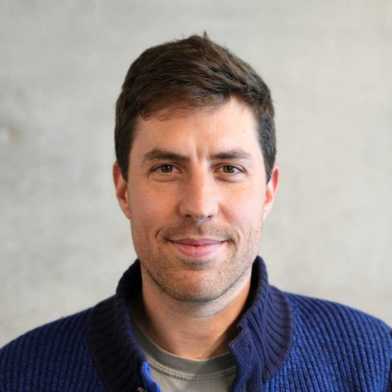
Upon application of the President of ETH Zürich, the ETH Board appointed Basile Wicky, currently Postdoctoral Researcher at the University of Washington in Seattle, USA, as Tenure Track Assistant Professor of Biomolecular Design at D-BSSE, starting this position in June 2024. Basile’s research focuses on computational protein design and synthetic biology for programming biomolecular and cellular systems.
New method to understand cell-cell communications
External
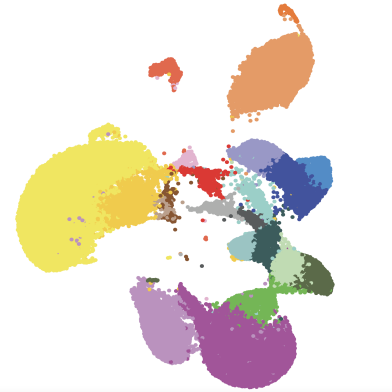
By communicating with one another, cells collectively drive biological functions. The direct neighbourhood of a cell influences its behaviour, gene expression and the cellular crosstalk. The development of diseases is often the consequence of disrupted cell-cell communications. In a study published by Nature Communications, researchers from the Systems Physiology lab of Andreas Moor, developed a method to characterise microenvironments at single-cell resolution.
All-department event: Welcome HOME Day
Internal
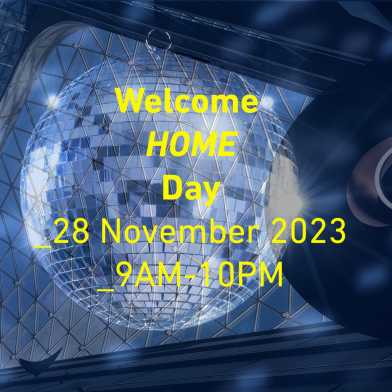
On 28 November, the D-BSSE celebrated the successful moving into its new home BSS on campus Schällemätteli with a full-day retreat and party. Some 200 members started the day with Lightening Talks presented by research, administrative and technical groups. On the second half of the day, workshops on a large variety of topics were held, followed by a rally across the building. At the closing ceremony, the department head acknowledged the extraordinary efforts of every single D-BSSE member.
SNF spark grants for unconventional research ideas
Internal
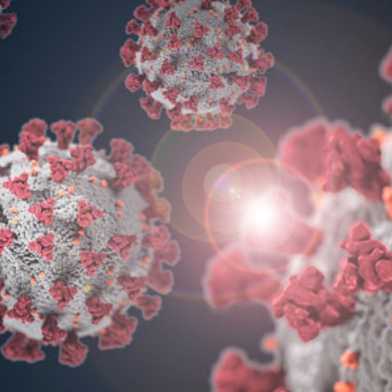
Two senior scientists receive rapid funding from the Swiss National Science Foundation for their novel and unconventional research ideas: Davide Eletto and Yingjun Liu. Their projects were selected for SNF spark grants in a double-blind reviewing process. Congratulations!
ETH Public Tour: Open doors at the Bioanalytics Laboratory
External
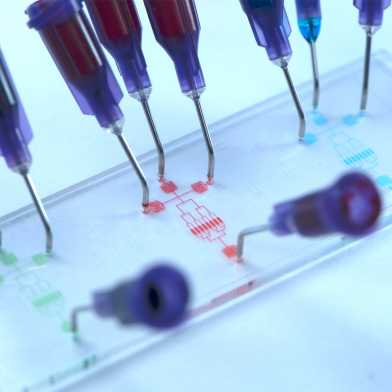
On 12 December, at 6:15 PM, the public is invited to learn about microchips and their great use for medical and diagnostic applications or for biological analyses. After a short introduction by Professor Petra Dittrich you will go into the labs and discuss with young scientists their research and experimental set ups. Please register for this tour (in German)!
Andreas awarded the Golden Owl in recognition of his excellent teaching
External
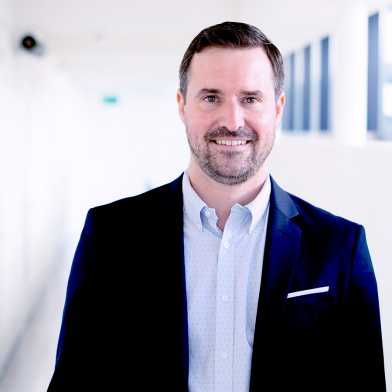
The ETH Golden Owl honours lecturers distinguished by exceptional teaching and motivates them to continue with their excellent teaching. The Owl is warded by ETH Zurich’s student association. This year, the Owl was awarded to Andreas Moor, Professor of Systems Physiology at D-BSSE. Congratulations!
“A long list of services and infrastructure are up and running”
Internal
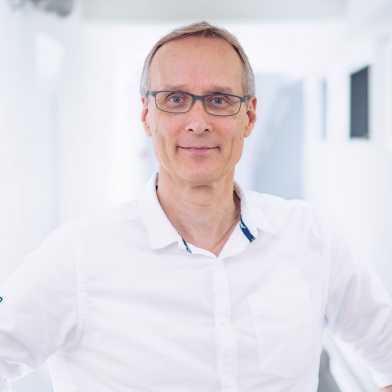
Moving a whole department to a new location requires extraordinary efforts in careful preparation and planning, and ongoing flexibility and response during execution. And it requires dedicated and forward-looking people who manage this demanding process. Interview with Niels Bürckert, Head of Facility Services for Science and Teaching (FaST) – and manager of the largest moving the D-BSSE has ever seen.
D-BSSE spinoff Memo Therapeutics secures funding to speed up clinical development of therapeutic antibodies for renal transplant patients
External
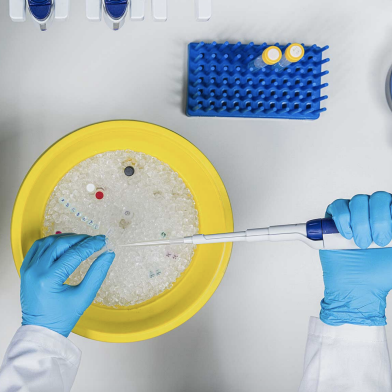
Memo Therapeutics, a late-stage biotech company specialised in the development of therapeutic antibodies, has announced the successful closure of a CHF 25 million Series C financing round. The raised capital will be instrumental to complete the Phase 2 clinical development of the antibody AntiBKV, designed to combat BK polyomavirus infections in kidney transplant recipients. Founded in 2012, Memo Therapeutics originated from the Bioprocess lab of Sven Panke.
Kickoff of Basel collaborative research hub: Engineering Translational Medicine
- ETM
- External
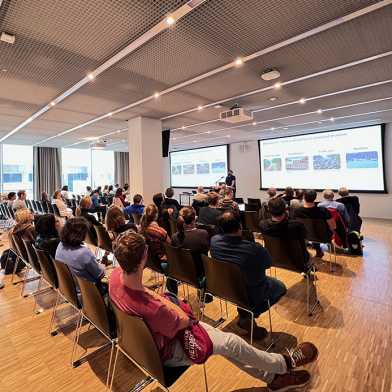
On 25 October, researchers from the D-BSSE, the University of Basel, the University Hospital and the University Children’s Hospital Basel met at the new ETH-building on Schällemätteli campus to mark the kickoff of a joint seminar series dedicated to translational projects and clinical applications. Spearheading the roll-out of the Engineering Translational Medicine research hub, this first event brought together experts from bench and bedside to spark innovative approaches and collaborations.
“I felt very honoured, but I could not give up on all this”
External
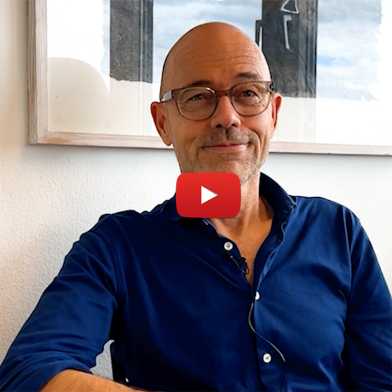
Daniel Müller, Head of the Biophysics group, was offered the prestigious Humboldt professorship. Learn about his motivation to decline this once-in-a-lifetime opportunity and the many reasons why it was a clear decision for him to stay at the D-BSSE and ETH Zurich.
EMBO fellowships enable deep research into brain organoids
Internal
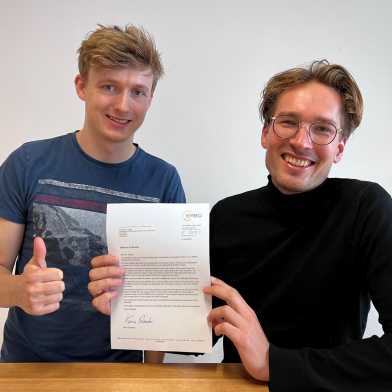
Jasper Janssens and Marius Lange, postdoctoral researchers in the Quantitative Developmental Biology group led by Barbara Treutlein, will use organoids to study regulatory mechanisms of the brain throughout evolution and human development. Congratulations, Jasper and Marius, on receiving the EMBO fellowships for advancing brain research!
Award honours Sven Panke for his efforts in promoting entrepreneurship
External
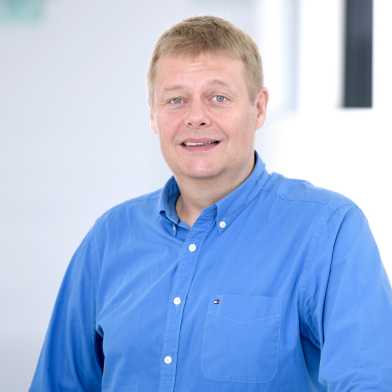
With the Dandelion Award, the ETH AI Center, ETH Entrepreneurship, the ETH Entrepreneur Club and Talent Kick recognise faculty members who are most entrepreneurial-friendly at ETH departments. Nominated by ETH students, PhDs and Post-Docs, Sven Panke receives the prize in 2023 at the D-BSSE. Well deserved: since 2011, the spinoff companies FGen, Memo Therapeutics, Omne Possibile, and Myria Biosciences originated from his Bioprocess lab. Congratulations, Sven!
Improving the environmental footprint of the textile industry: Bio-indigo for eco-conscious blue jeans
External
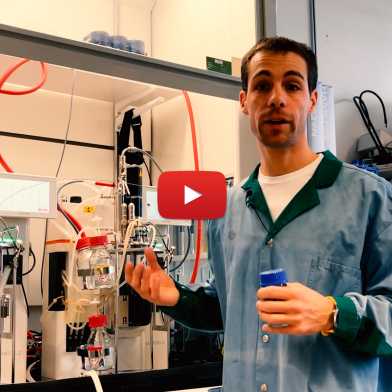
Only indigo gives denim its distinct blue colour. The dye is globally produced in quantities of up to 80,000 tonnes per year. However, its chemical production relies on fossil fuels, and some of the by-products are extremely toxic. After three years of research, scientists in Sven Panke's Bioprocess Lab have successfully developed a fermentation process for the synthesis of bio-indigo from renewable feedstock. The quality of this dye allows for direct application in industrial fibre staining.
“I have a long-standing interest in conflict work”
Internal
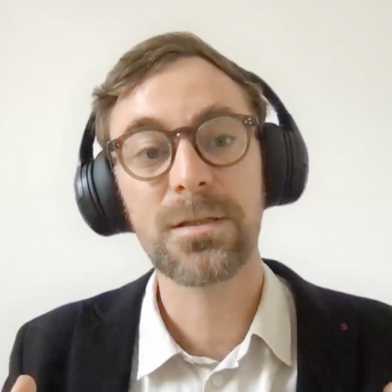
Ombudspersons offer advice to members of ETH Zurich who find themselves in difficult situations. While they cannot issue instructions, they may point out solutions, establish contacts, and initiate processes. Interview with Jonas Nakonz who is ombudsperson at ETH Zurich since fall 2022.
Welcome to our new Master students!
External
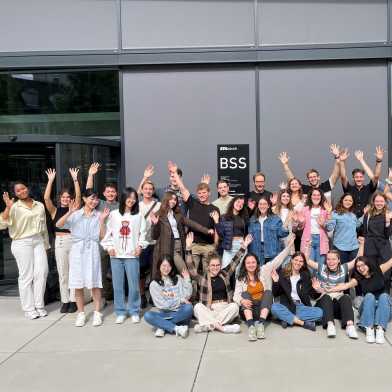
A warm welcome to our 67 new Master students at D-BSSE in Basel, enrolled in our Biotechnology and Computational Biology & Bioinformatics Master-level programmes. Have a great start!!!
Organoid Atlas: Understanding tissue development and degeneration
External
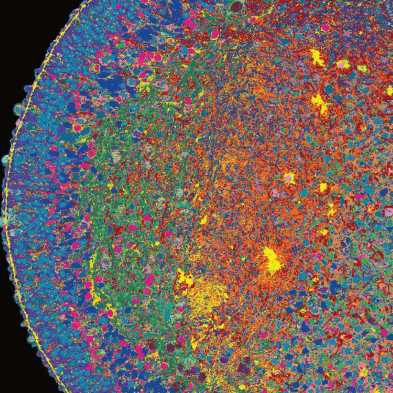
The eye-catching image in the current issue of GLOBE was taken by the group of Quantitative Developmental Biology group of Barbara Treutlein. It shows a thin section of retinal tissue, stained with fluorescent dyes and imaged using fluorescent microscopy. This process was developed to image 3D issue structures cultivated in the lab. A comprehensive atlas now combines all images from organoids to improve our understanding of tissue development and degeneration.
Engineered biosensors seek high-potential microbes for sustainable bioproduction
External
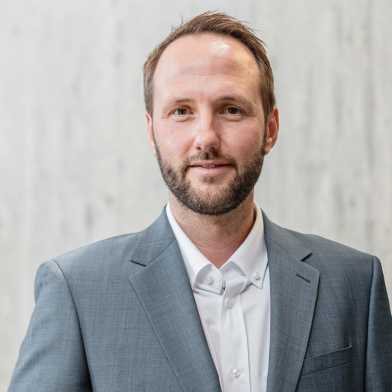
Markus Jeschek, Professor of Synthetic Microbiology at the University of Regensburg, Germany, and alumnus of Sven Panke’s Bioprocess lab, receives a prestigious Starting Grant from the European Research Council (ERC). In their project BiosenSAI, Jeschek and his team will build synthetic biosensors which help detect new microbes for the sustainable bioproduction of compounds with valuable properties for the chemical and pharmaceutical industry. Congratulations!
Wei Wei receives the 3Rs Young Investigator Award
External
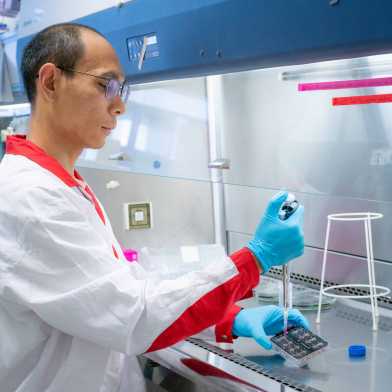
Honouring significant advances in the 3Rs Principle, i.e. replacement, reduction, and refinement of animal experimentation, the Swiss 3R Competence Centre is granting this year’s Young Investigator Award to Wei Wei, PhD candidate in the lab of Andreas Hierlemann. In his studies, Wei is creating a 3D model of the brain’s protective wall, the blood-brain-barrier, allowing him to investigate physiological processes at this wall. Big congrats, Wei!
D-BSSE at the Scientifica in Zurich, 2-3 September 2023
External
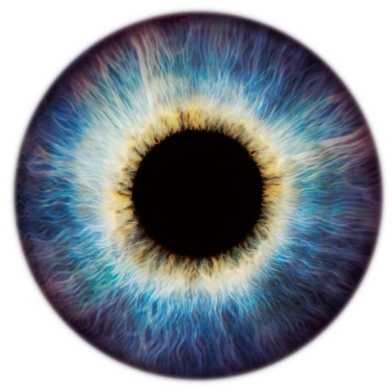
Switzerland’s largest science festival Scientifica is dedicated to the theme “What holds the world together”. Jointly organised by ETH Zurich and the University of Zurich, D-BSSE is contributing to the exciting programme with four activities including thematic booths, a workshop for teenagers and a science café. Scientifica takes place on 2-3 September in Zurich.
Meet Antonia Perju studying applications of nanomaterials in microfluidic systems
Internal
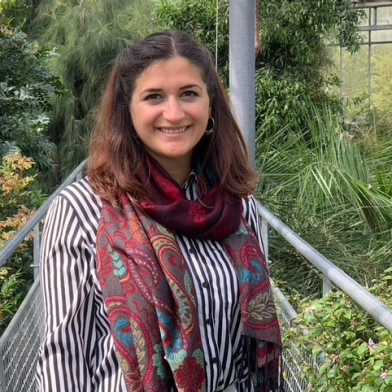
The Romanian graduated in medical physics, nanosciences and chemistry and moved for her postdoc at D-BSSE into developing microfluidic systems for cancer diagnostics. She fell in love with Basel soon after her arrival and is a keen hiker exploring mountains.
What is a cell type?
External
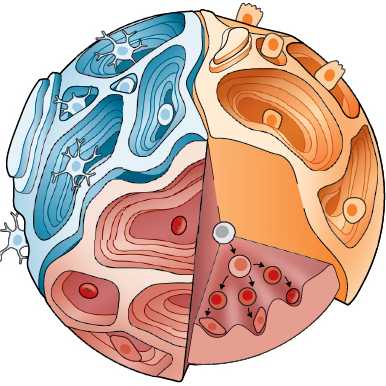
Cell atlases chart the molecular information of cells including its genetic make-up and the molecular changes along the cell’s lifespan. This information deepens our understanding of cell-to-tissue and disease development. In a Science Perspective article, Barbara Treutlein and colleagues at Roche’s Institute of Human Biology now question “What is a cell type?”, and call for future research into charting perturbations which alternate the cell’s molecular phenotype.
Using mutations in cancer and healthy single cells to track evolutionary changes
External
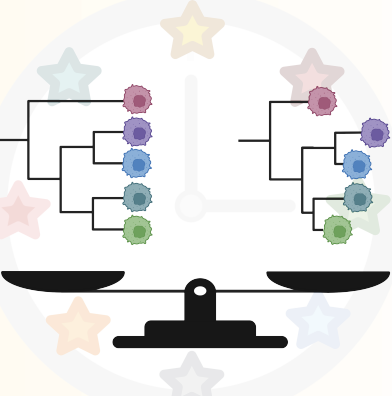
Variations in the cellular DNA occur frequently and are passed on to descending cells, thereby tracking the evolutionary history of cell populations. In a study published in Cell Genomics, researchers from the Computational Biology group of Niko Beerenwinkel utilized DNA variations to investigate the evolutionary rates in single cells from healthy and cancer tissues. They found that most cancer cells vary in their evolution rate, and also many healthy tissues show evidence for varying rates.
Basel networking event
External
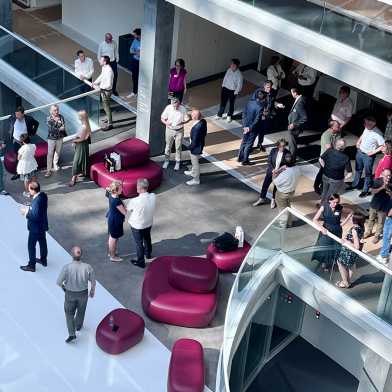
Holding their annual networking event in our new home, on 16 August we were welcoming the councillors of the cantons Basel City and Basellandschaft, their administrations, members of federal bodies, and representatives of academic partners, in total more than 90 guests.
Teaching Excellence Award for Michael Nash
External
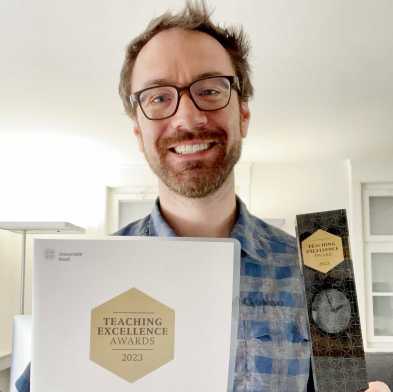
The University of Basel is presenting this year’s Teaching Excellence Award to Michael Nash, Professor of Molecular Engineering of Synthetic Systems at the Department of Chemistry and the D-BSSE. The jury honoured in particular his “patience, and open, relaxed manner allowing students to approach him on equal footing and giving them the opportunity to share their own thinking processes, helping them to get their heads around the lecture material more quickly”. Congratulations, Michael!
Advanced soft electrophysiological device to capture brain cortex activities
External
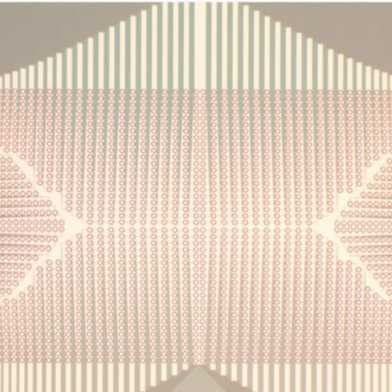
A team of researchers from Stanford University, CA, USA, together with researchers from the Bio Engineering Lab, led by Andreas Hierlemann, developed a high-density electrode array and connector on an ultra-conformable thin-film substrate, which self-assembles onto silicon microelectrode arrays and enables electrocorticogram recordings of extracellular neuronal activity with several thousand channels at micrometer resolution. The device and system was tested with brains of epilectic mice.
360 degrees views at our new home
Internal
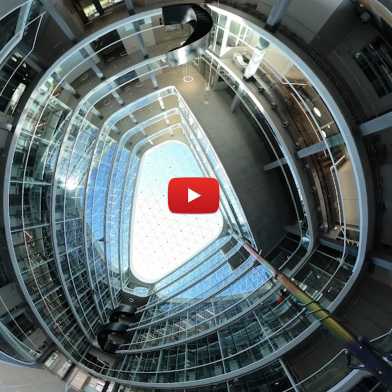
BSS, our new home is awaiting our move-in. Take a 360° look at this pentagon-shaped monument from glas, steel and concrete, imagine lively interactions in the think tanks, run along the lab corridors and virtually jump from the roof-top terrace…! The video is a project realised by film producer Gabriela D’Hondt from ETH Multimedia Services who tested the new 360° camera in our building - big thanks!
How evolution in genotype networks drives biological function
External
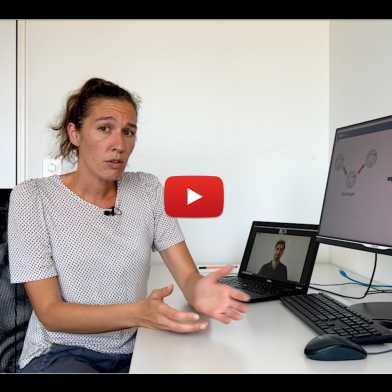
In a new study in Nature Communications, researchers around Joerg Stelling from the Computational Systems Biology group and Yolanda Schaerli, University of Lausanne, shed light on the link between the genetic makeup (genotype) and the behaviour (phenotype) of gene regulatory networks. Using experimental synthetic biology and approx. 4 million mathematical models, they demonstrate large genotype networks, i.e., connected genotypes with the same phenotype, that can facilitate evolution.
PhD Days 2023
External
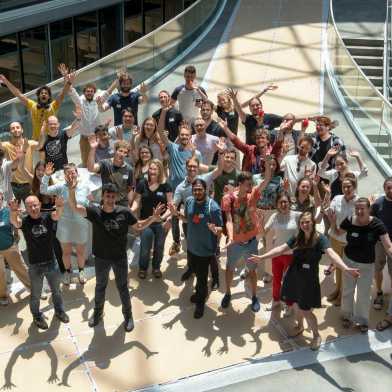
On 8 and 9 June, some 50 doctoral students from D-BSSE celebrated their housewarming at BSS with an exciting programme around science communication, career development, mentorship and supervision at ETH Zurich, and plenty of social and networking events. A highlight was the so called Night Science workshop on the creative side of the scientific process.
Passionate about teaching
Internal
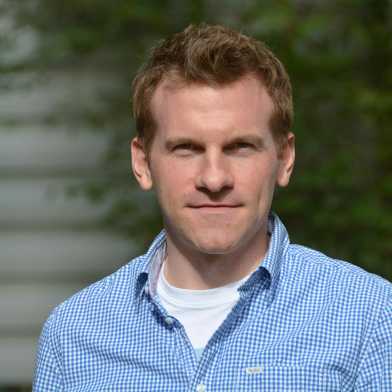
University teaching requires knowledge and knowhow and many more competences to meet the high quality standards and the students needs. Having received the Golden Owl for excellence in teaching in 2022, Roman Vetter in this interview shares his tipps, tricks and vision for teaching.
Meet Marius Lange developing computational models for organoid systems
Internal
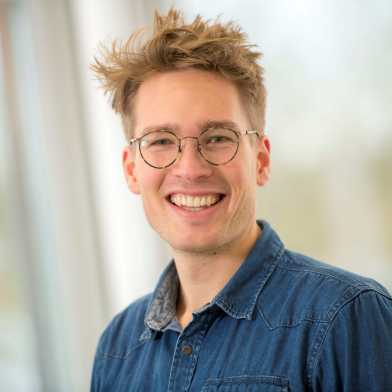
The German computational biologist joined the Quantitative Developmental lab of Barbara Treutlein to develop models of dynamic biological processes in organoids. Marius gladly found his expectations met by the interdisciplinary, international lab and great experimental facilities. Being a passionate outdoor person, he is looking forward to the summer season to explore water sports on the Rhine and hiking in the Basel area.
New insights into developmental precision
External
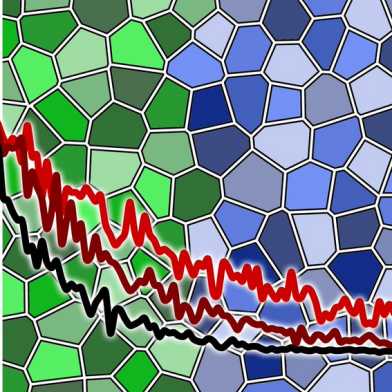
Signaling molecules called morphogens guide the formation of patterns in tissues. Their concentration forms gradients along the tissue to determine cell fate. How this mechanism can be robust towards biological noise and what the role of cell size is in pattern formation has long remained unclear. Using mathematical modelling, Jan Adelmann from the Computational Biology group of Dagmar Iber, shed new light on these two key aspects of developmental biology in his Master’s thesis.
Congratulations to our 2022 graduates!
External
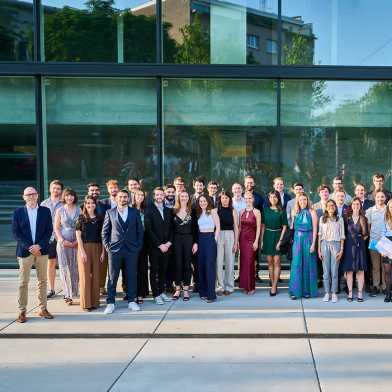
On 26 May, the Graduation Ceremony was held as the very first event in our new home in Basel. 22 Biotechnology and 18 Computational Biology & Bioinformatics graduates attended the celebration together with their family and friends, in total some 170 guests, enjoying the sneak peek into the new building and filling the atrium with their laughters and smiles. Huge congrats to our graduates and best of success for a bright future!
Meet María Pascual García studying stem-cell models of psychiatric disorders
Internal
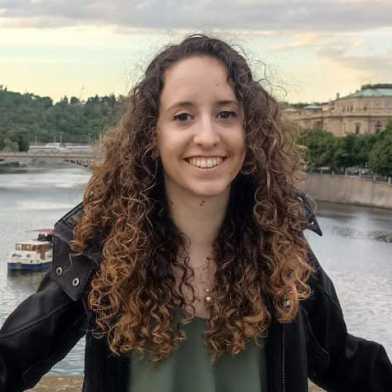
Moving from mouse studies to stem-cell research, the Spanish postdoc will focus on the electrophysiological mechanisms of autism-spectrum disorders at the Bio Engineering Lab of Andreas Hierlemann. After many years in the field of neuroscience in the Netherlands, María moved to Switzerland to gain more experience in the field of electrophysiology and discover the Helvetic country.
ETH Medals for excellent research: pathogens in public health | bacterial growth platform
External
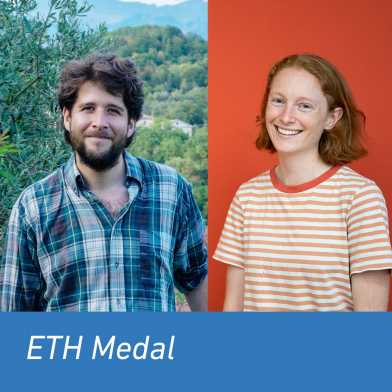
Sarah Nadeau from Tanja Stadler’s group and Joaquin Gutierrez from the lab of Mustafa Khammash receive the ETH medal for their excellent doctoral theses on advancing pathogen phylogenies for public health and developing a fully automated platform for co-culturing bacterial communities, respectively. Big congrats!
Facility Services’ report: Stunning insights into our new building
Internal
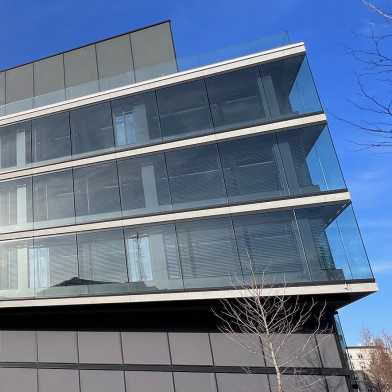
The ETH Facility Services department and its team located at D-BSSE provide an exciting glimpse at our new home in Basel. Their report not only guides members of the D-BSSE community through the technical and operational details of BSS but also describes the many services they offer.
SNSF award for Roman Vetter's research video
External
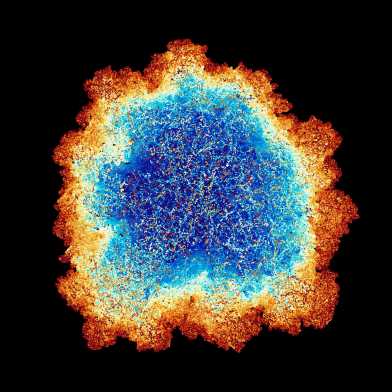
As one of 435 entries submitted to the 2023 SNSF Scientific Image Competition, the video of Roman Vetter was awarded the jury distinction. This stunning videos simulates tissue growth of a malignant tumour growing from a single cell to a million cells. Congratulations, Roman!
Achievements and legacy of the largest SARS-CoV-2 sequencing effort in Switzerland
External
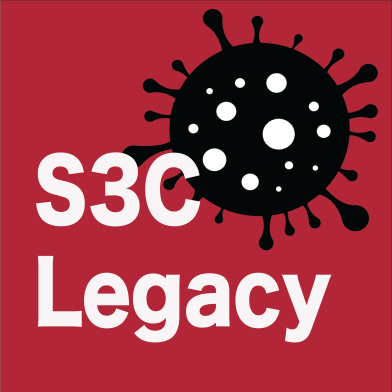
Whilst facing extraordinary challenges at the start of the COVID-19 pandemic, the Swiss SARS-CoV-2 sequencing consortium (S3C) was established at D-BSSE. With over 76’000 SARS-CoV-2 genomes sequenced between 2020 and the end of 2022 and made available in open-data archives, the effort led by Tanja Stadler informed science-based decision making – and will facilitate pathogen surveillance in the times to come.
“I sensed a great excitement and openness in our discussions on values”
Internal
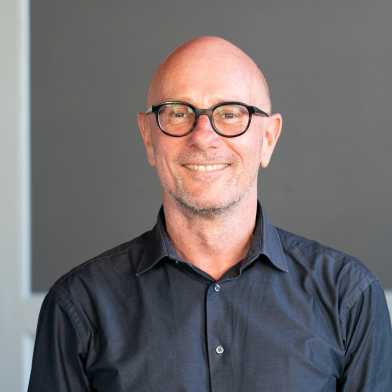
rETHink, the organisational development project at ETH Zurich, was launched in 2020. Three years later, on 23 March at the rETHink Switch event, ETH Zurich celebrated the conclusion of interpretation phase and kicked off the next phase that focuses on the implementation of the recommendations, initiatives, improvements. Interview with Roland Baumann, responsible for rETHink communications and core team member of Workstream 6 focussing on cultural development.
INVITATION: Bio(graphy) Apéro
Internal
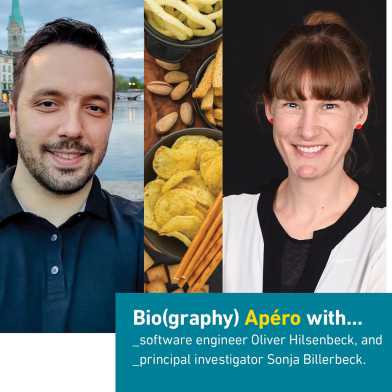
On 18 April, 5 PM, two D-BSSE alumni will share their inspirational biographies with us and respond to questions on career choices, lessons learned, pitfalls and opportunities you must grasp: Software engineer Oliver Hilsenbeck and principal investigator Sonja Billerbeck. As usual: for D-BSSE community members only!
Finalist for the ETH Spark Award: Sai Reddy’s team presents new cancer therapy with healthy donor T-cells
External
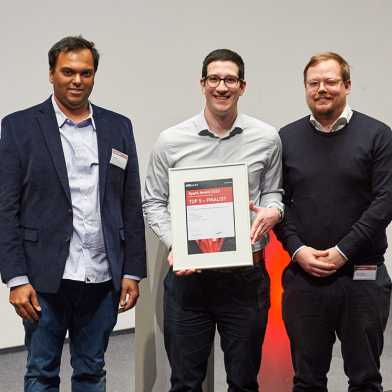
“Enhancing bispecific antibody therapies with healthy donor T-cells”: This groundbreaking work of Systems Immunology Lab head Sai Reddy and his team members Edo Kapetanovic, Rodrigo Vazquez-Lombardi and Cédric Weber had been nominated for the 2022 Spark Award. ETH Zurich gives this award to the most promising inventions that were filed as patents during the previous year. Reddy is a serial entrepreneur at D-BSSE.
Great public interest in Open-Lab tour
Internal
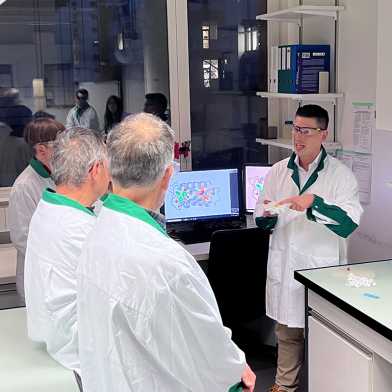
On 21 March, Sven Panke and his group invited the public to learn about bioprocesses and synthetic biology. After a short introduction on the principles of evolution and some of today’s tools applied in bioengineering labs, the visitors to the fully booked tour saw some of the labs from inside and had the opportunity to discuss open questions with the young scientists.
Understanding gene regulation in bacteria to develop new biotechnological solutions
External
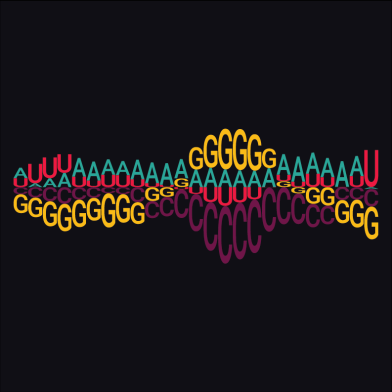
D-BSSE researchers shed new light on gene regulation and expression in bacteria. Applying a novel method for high-throughput sequence-function mapping, Simon Höllerer and Markus Jeschek from the Bioprocess lab characterised over 1.2 million mRNA variants in Escherichia coli. Their key findings: a common assumption on how gene expression works has been disproved. Additionally, the researchers found experimental evidence for a postulated mechanism in gene expression.
Meet Carolina Nunes working on toxicology and brain models for the safety of patients
Internal
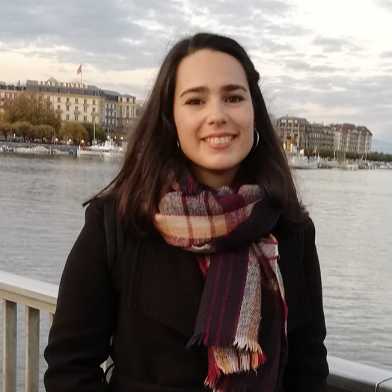
The Portuguese biologist gathered lab experiences in other European countries before she moved to Switzerland for a PhD studying the toxicology of brain models. During her postdoctoral research at the Bio Engineering lab of Andreas Hierlemann lab, she is part of a larger consortium to bring her findings closer to the patient. For the upcoming summer season, she will get a ‘Wickelfisch’ and practices dancing Forró for one of the many open-air dance floors in Basel.
"With your application you can demonstrate your scientific maturity and independence"
Internal
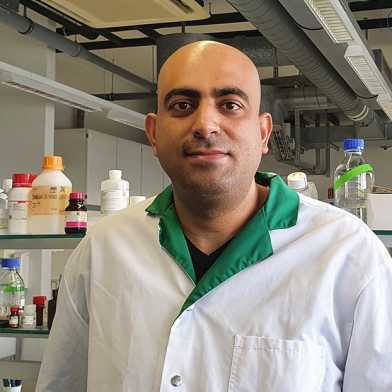
Mohamed Mahameed, a postdoctoral researcher in the Biotechnology and Bioengineering group of Martin Fussenegger, did his doctorate at the Hebrew University of Jerusalem, Israel. A fellowship from the European Molecular Biology Organisation (EMBO) then offered him the opportunity to transition from basic research to applied bioengineering. In his project, he investigated how to speed up the insulin secretion of genetically modified cells for diabetes therapies.
ETH Public Tour to the Bioprocess lab
Internal
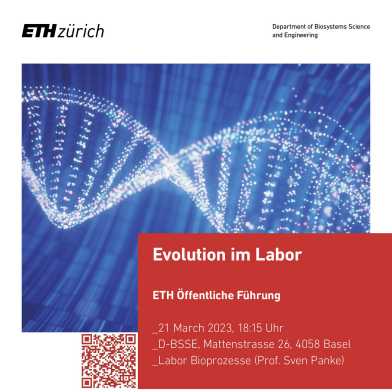
On 21 March, 6:15 PM, the D-BSSE opens the doors to the labs of the Bioprocess group led by Sven Panke. The group will introduce the public to the topic: How synthetic biology teaches evolution new tricks. Registration is required. Please note that this tour will be held in German.
Improved method for engineering therapeutic and diagnostic proteins on yeast
External
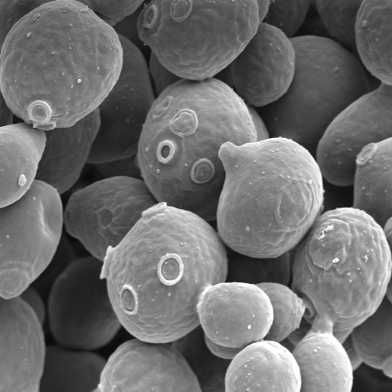
Surface proteins on yeast cells play a key role in biomedical applications. The process involves producing modified proteins on the yeast surface and selecting cells that exhibit favourable behaviour, such as binding to a target molecule. A study in ACS Synthetic Biology led by researchers around Michael Nash now presents a new method that equips yeast cells with specific genes that control the amount of protein produced on the cell surface.
Barbara Treutlein receives renowned Friedrich Miescher Award
- External
- D-BSSE
- Preise
- Awards
- Biotechnology
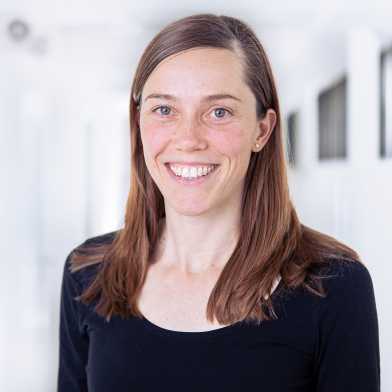
Barbara Treutlein, Head of the Quantitative Developmental Biology Lab, will be awarded the Friedrich Miescher Award 2023. The prize is Switzerland’s highest distinction for scientists under 40 working in the field of biochemistry.
SARS-CoV-2 genome data analysis points to efficiency of Swiss public health measures in 2020
External
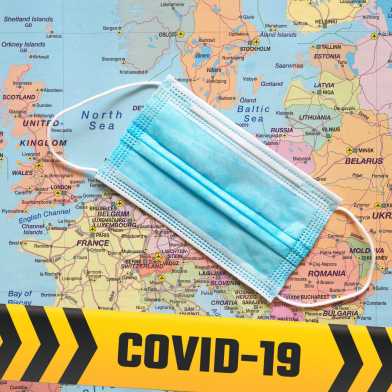
A large-scale study led by researchers from the group of Tanja Stadler shows the extent to which measures taken at the start of the pandemic in 2020 slowed the spread of the virus in the population. The quantitative analysis used a representative subset of over 11’000 sequenced coronavirus genomes from COVID19 patients in Switzerland and compared viral introductions to Switzerland at the point of border closures and beyond with a scenario where certain public health measures were absent.